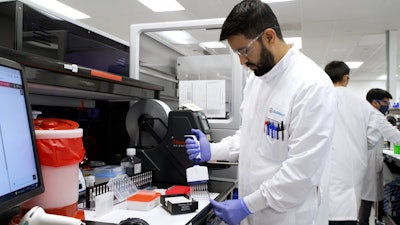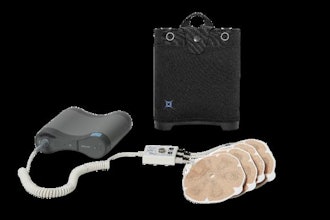
Guardant Health today announced the FDA has approved the company’s Shield blood test for colorectal cancer (CRC) screening in adults age 45 and older who are at average risk for the disease. It is the first blood test to be approved by the FDA as a primary screening option for CRC, meaning healthcare providers can offer Shield in a manner similar to all other non-invasive methods recommended in screening guidelines. Shield is also the first blood test for CRC screening that meets the requirements for Medicare coverage.
The Shield blood test is the result of over 10 years of research and development, including collaboration between Guardant Health and leading health organizations globally. Since the commercial introduction of the LDT (laboratory developed test) version in May 2022, the overall adherence rate for the Shield test has been more than 90%, meaning more than 90% of patients who were prescribed the test in a real-world clinical setting completed it. In contrast, studies show only 28-71% of patients who are prescribed other screening methods, such as colonoscopy or a stool test, complete them. Primary care physicians can have patients complete a Shield test with a simple blood draw during a routine office visit, providing a convenient and more pleasant alternative screening method that doesn’t require the special preparation, dietary changes, time and discomfort associated with colonoscopy or the unpleasantness of handling stool.
The FDA decision follows a strong recommendation for approval by an Advisory Committee panel in May 2024. The approval was based on results of ECLIPSE, a 20,000+-patient registrational study evaluating the performance of the test for detecting CRC in average-risk adults. Designed to reflect the diverse population of the U.S., the study was conducted at more than 200 clinical trial sites in rural and urban communities across 37 states. Results from the study, published in the March 14, 2024, issue of The New England Journal of Medicine, showed that Shield demonstrated 83% sensitivity for the detection of CRC, with 90% specificity for advanced neoplasia. This performance is within range of current guideline-recommended non-invasive screening methods, in which overall CRC sensitivity ranges from 74% to 92%.
Shield is available for eligible individuals by prescription through a doctor or other healthcare professional and is expected to be covered for eligible Medicare beneficiaries. Commercial insurance coverage for patients eligible for CRC screening will continue to expand following anticipated future guideline inclusion by the American Cancer Society and the U.S. Preventive Services Task Force (USPSTF).






















